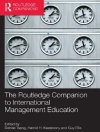The government prioritizes systematic synthetic phonics as a key strategy in the teaching of reading. This core text is your guide to teaching systematic synthetic phonics in primary schools.
The book′s balance of research and practice and its focused approach enables you to develop an in-depth understanding of what works in phonics teaching, and why.
It begins with the subject knowledge that underpins effective teaching and goes on to explore pedagogy from the early years to Key Stage 2. It includes guidance on systematic progression, intervention and multi-sensory and interactive methods.
This 4th edition includes a new section ′Challenges in learning and teaching phonics′ supporting you to meet the individual needs of children.
Inhaltsverzeichnis
Section 1: Subject knowledge for teachers
1. The place of phonics in the teaching of reading
2. Discriminating sounds and phonemes
3. Grapheme–phoneme correspondences and ‘tricky’ or common exception words
4. Decoding and encoding text
5. Long vowel digraphs – the advanced alphabetic code
6. Phonics into spelling
Section 2: Effective pedagogy
7. Teaching phonics in the early years
8. Multi-sensory and interactive methods
9. Teaching a systematic structured progression
10. Planning for phonics
11. Tracking and assessing pupils’ learning and effective intervention
12. Teaching phonics in Key Stage 2
13. Using a range of programmes and resources
14. Using technology to support the teaching of phonics
Section 3: Challenges: in learning and teaching phonics
15. Challenges for teachers, parents and pupils
16. Teaching and learning phonics for pupils with individual needs
Über den Autor
David Waugh is a former deputy headteacher who worked in ITT from 1990 at the University of Hull, where he led the PGCE course and became Head of Department. In 2008 he was appointed as one of two (the other being Wendy) National Strategies Regional Advisers for ITT. He is currently lectures at Durham University. He has published extensively in primary English, as well as developing e-learning resources for National Strategies for English, mathematics and mentoring and coaching. David also writes children’s stories, including The Wishroom, which was written with 45 children from 15 East Durham primary schools and published in 2017.












